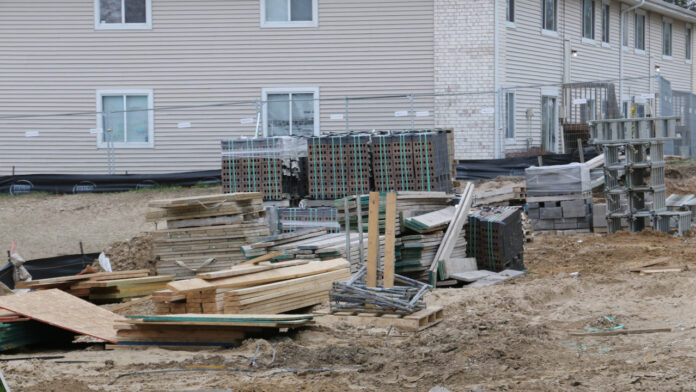
In just the past year, prices for materials used in residential construction have climbed nearly 20%. But that was also a period of intense demand and insufficient supply — a reliable recipe for sky-high building material prices.
So with interest rates rising at their fastest pace in decades, housing demand is already beginning to ease. But will that mean material prices are on their way down as well?
If the mercurial fall in framing lumber prices in recent months is any indication (currently down 48% compared to one year ago), other materials are also likely to see prices flatten and drop as demand slows, National Association of Home Builders (NAHB) leaders say.
Steel mill products and ready-mix concrete are prime examples: Steel mill products have increased 105.6% since January 2021, but have declined 3.1% thus far in 2022. And prices for ready-mix concrete are up 12% from the start of 2021, but have only increased 3.2% since the beginning of 2022.
However, NAHB chief economist Robert Dietz asserts that broader and more significant price declines for building materials will require more beyond the Federal Reserve’s strategy of rising interest rates.
“I do think the Fed should explicitly acknowledge the role fiscal, trade and regulatory policy is having on the economy and inflation,” Mr. Dietz said in a recent Eye on Housing article.
“Higher interest rates will not produce more lumber, [and] smaller balance sheets will not increase the production of appliances and materials,” he wrote. “In short, while the Fed can cool the demand-side of the economy (reducing inflation and growth), additional output on the supply-side is required in order to tame the growth in costs that we see in housing and other sectors of the economy.”
Thus far, any price-growth declines in building materials have been predominantly the result of a drop in buyer demand. Further evidence of this has continually appeared throughout 2022 within each reading of the NAHB/Wells Fargo Housing Market Index (HMI) of builder sentiment. The HMI declined for the sixth straight month in June, falling to a level of 67 and indicating a growing number of builders are either experiencing or anticipating a slowdown in prospective buyer traffic. The same index had fallen eight points to a level of 69 in May.
“On the demand side of the market, the increase for mortgage rates for the first half of 2022 has priced out a significant number of prospective home buyers,” Mr. Dietz said. “Consequently, the market has now passed an inflection point whereby single-family home building is weakening, [and] we expect further declines in the months ahead.”




